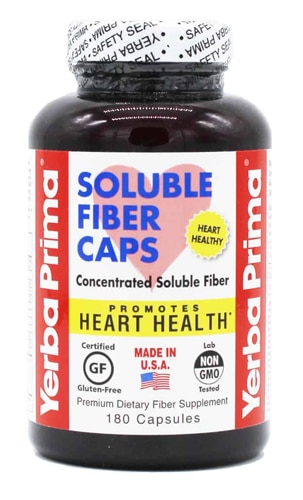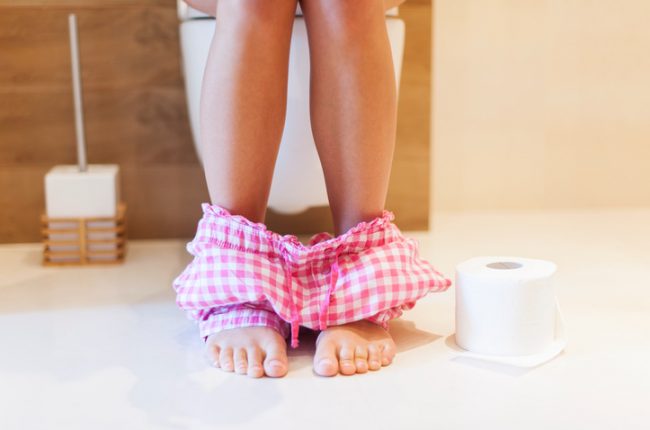After the age of five—or, for some, fifteen—most of us are extremely discreet about our bowel habits. And is it any wonder? “Going number two” doesn’t exactly make for stellar conversation.
Refusing to discuss your bowel habits with your doctor—or ignoring changes in your routine because you “just don’t want to think about that stuff”—could, however, work against you. Take it from the National Institutes of Health: “The health of your gut plays a key role in your overall health and well-being.” Even without knowing all the details of your GI tract and how it expels, you probably know when something is amiss in your digestion or overall health—constipation and diarrhea aren’t exactly subtle.
But here are seven things you should know about elimination so that you can keep your gut on, well, tract:
1. Being embarrassed about “going” has a name
We wait until our spouse has left for the day before heading to the toilet, we run the shower when we have noisy gas, or we stay mum around fart jokes—if this sounds like you, know you’re not alone. While elimination is as natural as breathing and sleeping, most of us have been taught to feel shame around the perfectly-normal function from an early age (and, in general, women are more embarrassed than men when it comes to the whole topic).
As the NIH reports, there’s an actual syndrome behind this. Dubbed Terror Management Theory, people who suffer from this have an “elevated” sense of themselves as biological creatures and deem things like pooping a sign of their mortality. This may be an extreme example but it speaks to something critical: If you consistently suppress the urge to go out of fear, shame—or some sort of existentialism—you’ll not only be potentially putting your body in pain and peril, but you might also be missing out on the things your health is trying to tell you.
2. Feces are more complicated than they look
Some children may have a fascination with what they leave behind at the marble throne—I MADE that?—but most of us are quick to flush. And yet what your poop looks like might actually be of interest. Comprised of dead bacteria that, as the University of Massachusetts reminds us, helped us digest our food, feces are also made up of “living bacteria, protein, undigested food residue (known as fiber), waste material from food, cellular linings, fats, salts, and substances released from the intestines (such as mucus) and the liver.” And while it may not seem so from time to time—hello, dry colon—feces are typically comprised of 75 percent water. It makes sense that proper hydration can lead to healthier digestion then, doesn’t it?
3. There’s a solution (most of the time) for hard-to-pass stools
Whether you have full-blown constipation or you’re just finding that your poop is hard to pass, you needn’t necessarily reach for that chocolate Ex-Lax. Rather, look first to your diet. Magnesium supplements and magnesium-rich foods (such as spinach, bananas, dark chocolate and pumpkin seeds) can soften the stools, in that the nutrient draws water into the bowel and renders eliminating less effortful; it also encourages relaxation in the intestinal walls.
4. Get moving to get, well, moving
Still constipated? Consider a brisk walk or hitting the mat. “Movement in general is important for stimulating the bowels to help move the food bolus, gas, and, ultimately, waste through your system,” gastroenterologist and clinical assistant professor of medicine at New York University Dr. Rebekah Gross says. Yoga in particular can encourage healthy digestion, thanks in part to its stress-reducing benefits. Not to worry if you’re not a devotee of the practice, either: Even simple moves, like downward facing dog and seated meditation, can ease tension and offer release in the digestive tract.
5. Your potty may be in the wrong position
Most of us have Western toilets in our homes but the shape of these contraptions are relatively new to humankind. In other words, our ancestors didn’t have the luxury to read a magazine on a porcelain chair; instead, they squatted. That may sound less than appealing to the average citizen of the 21st century (at least those in the Western World—more than half of the human population continues to squat today), but it turns out our predecessors were on the right…page (or place, if you think about it): Sitting on a toilet creates a crook in the rectum that can make pooing more laborious than it needs to be. Squatty Pottys have, thus, exploded in popularity, but you don’t have to rush out to Bed, Bath & Beyond to find relief. A small stool, waste basket, stack of books—really, anything that will elevate your feet to promote squatting, ought to do the trick.
6. You might want to give your tummy a bedtime
You cut yourself off from caffeine—hopefully—at a reasonable hour. Why not do the same for your gut? Because here’s something you may intuit but not really know: Your GI Tract is more active in the morning and daytime than at night, meaning you may want to reduce how much you eat after dark. And when you do eat, aim to pile your plate with fruits and veggies to foster healthy digestion (and a healthy weight).
7. Your colon is unbelievably big
You might be a size 2 or you might throw a football across a field for a living. Either way, your colon is more impressive than you probably ever thought. As the National Institutes of Health affirms, it runs roughly 30 feet long. Consider its size representative of its responsibilities: it “works with other parts of your digestive system to break food and drink down into smaller molecules of nutrients,” the NIH says. The blood then “absorbs these and carries them throughout the body for cells to use for energy, growth, and repair.” All the more reason to keep your gut in check, wouldn’t you say?




